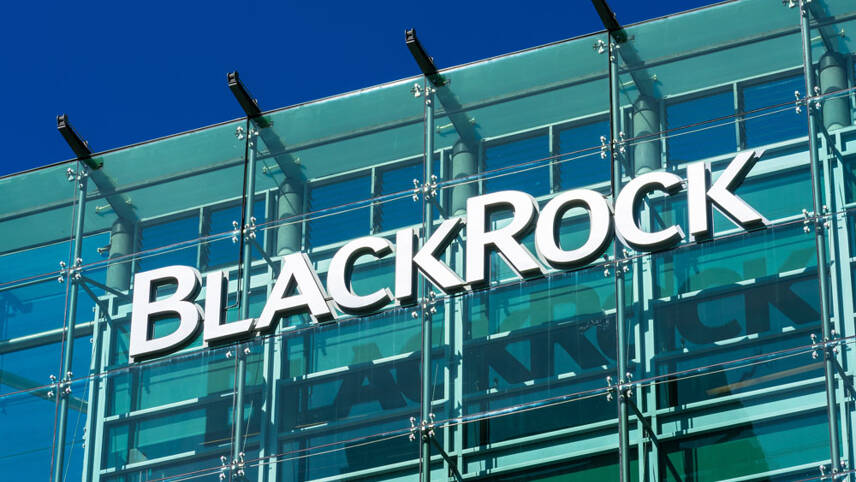This premium content is exclusive to edie Members.
To find out more about edie Membership, please click below.
If you are an existing member, login here

The letter, published on Wednesday (27 March), starts by stipulating that investment in housing and infrastructure could help the US and other markets to rebound from the current recession. Then, the bulk of the letter is spent setting out options for modernising the US’s retirement system, which is “under immense strain” due to an ageing population and with inflation outstripping wage growth.
At a quick glance, you’d be forgiven for missing any mention of sustainability, ESG and climate.
Look more closely and it could be argued that Fink was backtracking on – or at least weakening – several statements made in prior years.
Fink’s 2020 letter is often cited by sustainability professionals. He wrote that January, two months before Covid-19 was declared a pandemic, that businesses would need to have a purpose beyond making profits to remain profitable in the long term.
He spoke in detail and at length of how demands that companies manage their environmental and social impacts and disclosures were coming top-down, from legislation and regulation, and bottom-up. He stated that climate had “become a defining factor in companies’ long-term prospects”.
Fink reiterated his call for businesses to identify a purpose-related “north star” and contribute to a “tectonic” shift towards growing climate finance in his 2022 letter.
Now, Fink has ditched all mention of purpose and social sustainability. He has, however, argued the case for “energy pragmatism” – which he defines as investing in both new fossil fuels and new clean energy, as well as energy systems infrastructure. Investment in oil and gas, he argues, is necessary to preserve energy security due to the intermittency of renewable generation.
Fink cited Germany and Texas as examples of locations where policymaking and targeted investment has driven an energy transition grounded in “pragmatism”.
Noting discussions with businesses and policymakers in 17 countries during the past year, Fink said: “The message I heard was completely opposite to what you often hear from activists on the far left and right who say that countries have to choose between renewables and oil and gas. These leaders believe that the world still needs both.
“They were far more pragmatic about energy than dogmatic. Even the most climate-conscious among them saw that their long-term path to decarbonisation will include hydrocarbons, albeit less of them, for some time to come.”
The International Energy Agency’s pathway to net-zero for the global energy system includes an immediate end to new upstream oil and gas projects with long lead times, as well as cessation on the development of all new coal mines and coal-fired power plants without carbon capture.
Gas-fired power generation will need to peak and enter a long-term decline before the late 2020s.
The Agency is confident that energy security can be maintained and even enhanced with concerted efforts to improve energy efficiency, build in flexibility, scale energy storage and bring more renewables online.
Fink does believe that, in some cases, decarbonisation and energy security are “complementary”, but he sympathises with those who believe they are “competing”.
A clash of wills
In contrast to the IEA’s recommendations, Fink states in his letter that BlackRock will not set a firm end-date for all fossil fuel investment, because it “follows its clients mandates” and should give those wishing to invest in these dirty energies “every opportunity to do it”.
BlackRock has more than $300bn invested in traditional energy companies, who Fink says are “pioneers of decarbonisation, too”.
These companies certainly have deep pockets and the expertise needed to innovate. But they collectively allocated less than 3% of their investments in renewables in the 12 months leading up to November 2023.
It is clear from the letter that Fink has bowed to pressure from investors driving America’s ‘war on ESG’.
Fink vowed last year to stop using the term ‘ESG’ because it had become so politicised. Instead of launching more ESG thematic funds in late 2023, BlackRock sought to bolster its place in the market for transition finance, which is provided to high-emission companies with the intention of supporting their move to low-carbon processes and technologies.
But it’s doubtful that the letter will be sufficient to win back the trust of those who believe that ESG is simply a way for the corporate world to serve left-wing politics.
Some have already deserted Fink’s team. The Texas School Fund pulled $8.5bn from BlackRock this week stating that it was leaning too far into the ESG agenda. Further funds have pulled almost $5bn more in recent days.
Moreover, Fink has repeatedly stated that, regardless of what language he uses, BlackRock’s long-term strategy remains unchanged. The letter notes that the energy transition is a “mega force” and that net-zero “remains a top investment priority” for most clients in Europe.
In regards to those wanting BlackRock and peers to go further and faster on climate and ESG, it’s obvious that the letter will be a disappointment. This letter may well land the firm in hot water ahead of what’s shaping up to be a record AGM season for activist resolutions.
ShareAction and Ceres, two major coordinators of such resolutions, are planning for hundreds to be lodged, after a year in which investor support slumped. Only 3% of shareholder resolutions aimed at improving corporate sustainability passed in 2023, down from 21% the year prior.


Please login or Register to leave a comment.